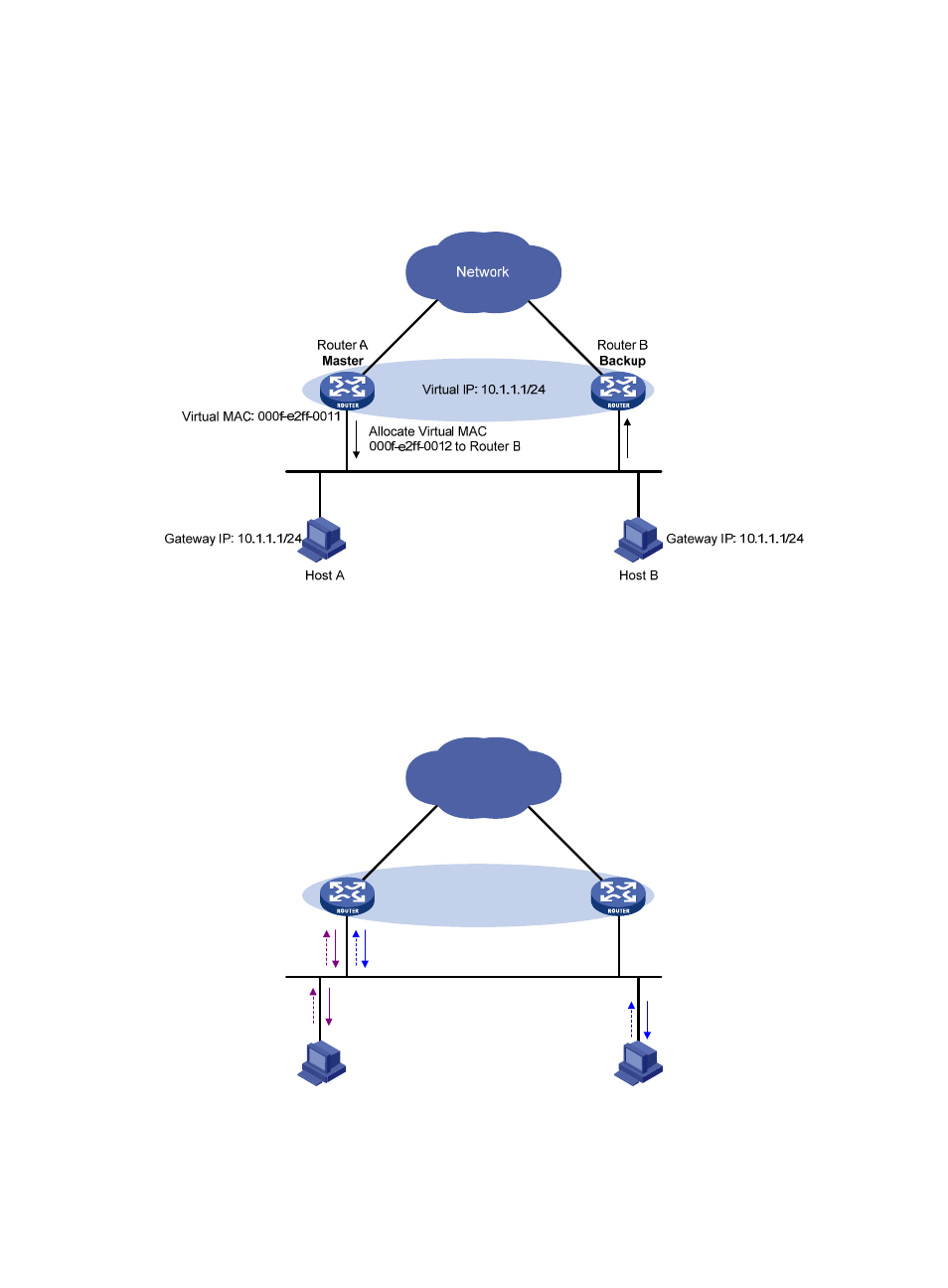H3C Technologies H3C SecBlade LB Cards User Manual
Page 19

11
In an IPv4 network, a load-balanced VRRP group works as follows:
1.
The master assigns virtual MAC addresses to all members, including itself. This example assumes
that the virtual IP address of the VRRP group is 10.1.1.1/24, Router A is the master, and Router B
is the backup. Router A assigns 000f-e2ff-0011 to itself and 000f-e2ff-0012 to Router B.
Figure 7 Virtual MAC address assignment
2.
When an ARP request arrives, the master (Router A) selects a virtual MAC address based on the
load balancing algorithm to answer the ARP request. In this example, Router A returns the virtual
MAC address of itself in response to the ARP request from Host A. It returns the virtual MAC
address of Router B in response to the ARP request from Host B (see
).
Figure 8 Answering ARP requests
3.
Each host sends packets to the returned MAC address. As shown in
, Host A sends packets
to Router A and Host B sends packets to Router B.
Host A
Host B
Router A
Master
Router B
Backup
Virtual IP: 10.1.1.1/24
Network
Gateway IP: 10.1.1.1/24
Gateway IP: 10.1.1.1/24
Virtual MAC: 000f-e2ff-0011
Virtual MAC: 000f-e2ff-0012
ARP request
Target IP: 10.1.1.1/24
ARP reply
Target MAC: 000f-e2ff-0011
ARP request
Target IP: 10.1.1.1/24
ARP reply
Target MAC: 000f-e2ff-0012
